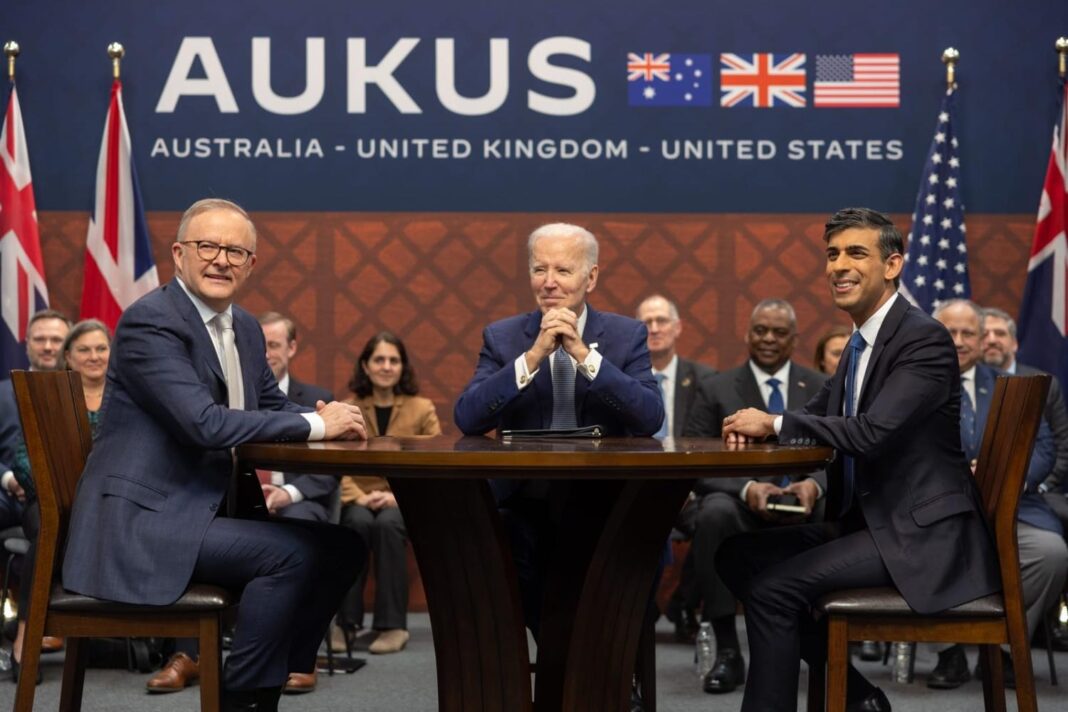Canberra, Australia, June 06: Cambodian Prime Minister Samdech Techo Hun Sen expressed his concerns on Monday regarding the AUKUS alliance, stating that it poses a threat to the stability of the Association of South-East Asian Nations (ASEAN).
The AUKUS alliance, a trilateral security pact between Australia, the United Kingdom, and the United States, was announced on September 15, 2021, with a focus on the Indo-Pacific region.
Under the terms of the agreement, Australia plans to acquire a fleet of up to eight nuclear-powered submarines by the mid-2050s. Australia will construct nuclear-powered submarines using technology provided by the United States and the United Kingdom.
The move is intended to enhance Australia’s self-defense capabilities in response to the increasing military buildup by China and its assertive posture in the Indo-Pacific region.
Prime Minister Hun Sen warns that this military alliance represents a worrisome “starting point of a very dangerous arms race” within the region, potentially leading to greater global instability.
“This alliance will trigger a conventional and nuclear arms race in the region, and thus destabilize peace and security, undermine economic development, and destroy ASEAN’s centrality,” he voiced his concerns to Xinhua, China’s state news agency.
However, Australian Deputy Prime Minister and Defense Minister Richard Marles dismissed such criticisms, asserting that smaller groupings like AUKUS and the Quad aim to complement ASEAN’s role in cooperative security within the region, rather than replace it.
He further urged China to enhance transparency regarding its military buildup.
It is important to consider Prime Minister Hun Sen’s statements against the backdrop of Cambodia’s close ties with China. The nation has faced accusations of being excessively deferential to Chinese interests, evident in its robust economic, military, educational, and cultural relations with China.
The deep penetration of Belt and Road Initiative (BRI) projects into Cambodia and its high indebtedness to China (accounting for 41% of its foreign debt) which it describes as “manageable”, reflects Cambodia’s approach to regional dynamics, often downplaying the South China Sea issue within ASEAN forums.
Numerous strategic analysts worldwide have warned that Cambodia’s Ream naval base is evolving into China’s second military base after Djibouti in the Horn of Africa. Some observers view China’s military buildup in the Indo-Pacific as the most substantial since the end of World War II.
Analysts are contemplating that, as AUKUS and QUAD seek to consolidate their influence to deter further Chinese aggression in the Indo-Pacific, China is employing diplomatic maneuvers to sow confusion and fear in the region regarding these developments.
It remains to be seen how these alliances will affect regional dynamics and ASEAN’s role in promoting peace and stability in the Indo-Pacific.






